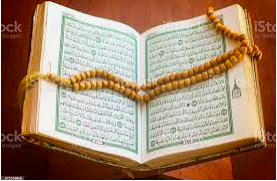What is The Calcutta Quran Petition


The recent banning of PFI in India is one of a series of events which have rattled a lot of so-called sacred sanctuaries. The sacrifice of Kanhaiya Lal was also a link to this chain, and so was the courageous and bold statements by Nupur Sharma. Since 2014, there has been a marked increase in the awakening of Hindu. A couple of decades before this, on July 20th, 1984, H.K. Chakraborty had done the unthinkable by writing to the Secretary, Department of Home Government of Home Government of West Bengal, demanding the ban of the Quran. Chakraborty lived in Bangladesh before the partition of India, which is when he moved to Kolkata. The letter claimed that Sections 153A and 295A of the Indian Penal Code and the section Section 95 of the Criminal Procedure Code was used by Muslims to ban or proscribe publications critical of Islam. The letter further stated that “so far it had been the privilege of the Ahl e Kitab (People of the book) to ban and burn the sacred literature of the pagans.” The Muslims probably could never have thought that the acts which they have brought to protect themselves will, one day, be used against them in a court of law.
The letter pointed to the content in Quran which made a publication of the book an offense under sections mentioned above. The letter also quoted
The letter demanded that all the copies of the Quran in Arabic as well as translations be forfeited to the government under the section 95 CRPC. The reason why Chakarborty was so clear and focused on his stand, and how he got to do so much research on the matter, was that he himself hailed from East Bengal, and was first had witness to the atrocities committed against the non Muslims at that time. He had also known how the renowned religious leaders of East Bengal Muslims had approved of that behaviour pattern as in keeping with the highest tenets of Islam. Ever since, he had been searching for the belief system which inspired this behaviour pattern. He felt sure that he had found the primary source of that belief system when he studied the Quran.
After writing to the concerned departments a couple of times and receiving no response, Chakraborty met Chandmal Chopra, an adherent of the ancient Jain tradition which has all along stood for the five principal virtues prescribed by all schools of Sanatan Dharma – non-violence, truthfulness, non-stealing, chastity and non-covetousness. It was a puzzle for him as to how adherents of another religion could persist in practices to the contrary and that, too, with a good conscience. His question stood as if answered when he came to the Quran. He was in a position to confirm that the conclusions reached by Chakraborty were correct.
Chopra also wrote to the same department in 1985 and received no response again. Following this, Chopra filed a writ Petition in the High Court on March 29, 1985, under the article 226 of the Indian Constitution, which came to be known as the Calcutta Quran petition. The matter was listed on April 12th 1985 in front of Mrs. Padma Khastgir, and the respondent was directed to file an affidavit in opposition by 17th May 1985.
The case had caused considerable excitement among the “believers” (Momins) and interest among the “infidels” (Kafirs) in April -May, 1985. The press in India and abroad gave many headlines to what was rightly regarded as an unprecedented event in the history of religion. It was the first time that a Kafir had questioned the character of a document hailed as the very Word of God by a People of the Book.
The affidavit of reply was filed on April 29th, and the two lines which were the crux of the response were:
From the time of the British Rule and since Independence, in spite of the Indian Penal Code being in existence, there had never been such an application in any Court in India
Needless to say, the matter created quite an uproar in the liberal quarters, and the Indian secularism kick into action. The Telegraph reported: “The Union Government has decided to intervene in the writ petition in the Calcutta high court praying for a ban on the Quran. According to an official release, the law minister [Ashok Sen] is proceeding to Calcutta immediately for giving the necessary instructions. The government has decided to seek the outright dismissal of the petition, the release added. It is also understood that the attorney-general [of the Government of India] is being briefed to appear in the case.”
A staff Reporter of The Telegraph added: “Justice Khastgir had asked the state government and the Union government to show cause as to why the Quran should not be banned. The order created considerable resentment at the Bar Association [in Calcutta] where Muslim lawyers had called an extraordinary meeting and moved a motion for condemning Justice Khastgir for having admitted the case. The motion was, however, defeated as the lawyers moving the motion could not muster enough votes.”
To conclude, the government had decided to seek an outright dismissal of the petition. It was also shared the Attorney General will appear to hear the case in the High Court. The Chief Minister reportedly called the petition ‘a disgrace’ in the legislative assembly.
It had clearly sent the establishment in a tizzy as they scrambled to retain the secular decorum.
(To be continued)
DISCLAIMER: The author is solely responsible for the views expressed in this article. The author carries the responsibility for citing and/or licensing of images utilized within the text.
